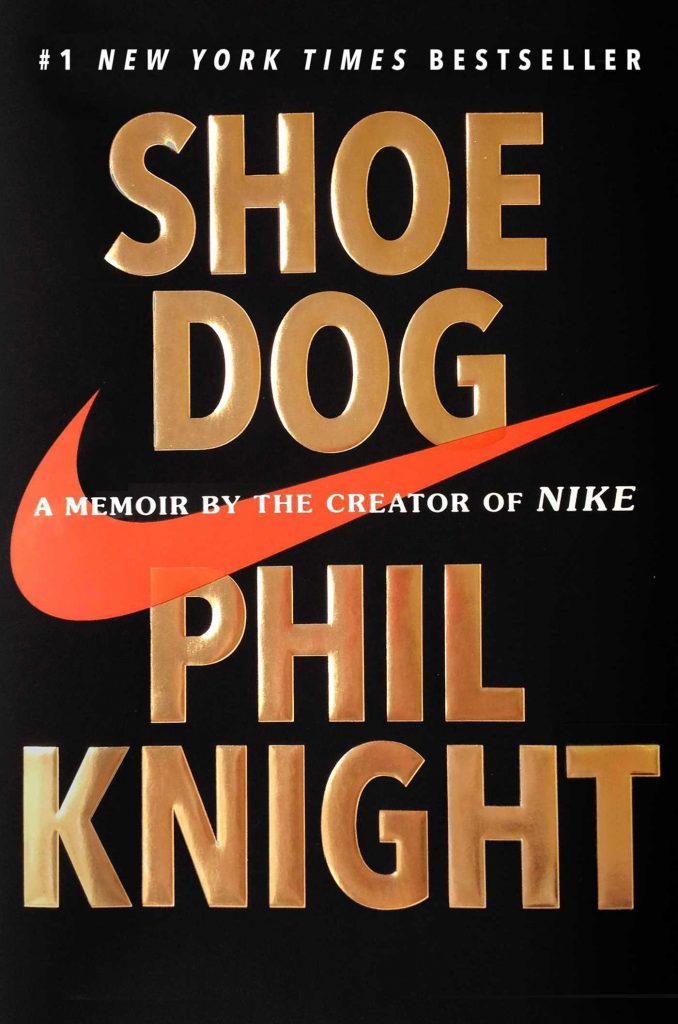
Rating 9.0/10
Shoe Dog is Phil Knight, one of the cofounders of Nike’s, memoir about the first years of the company. He explains the process of creation, the adversities he encountered and how his life ran parallel to the development of the company. It is a great read and gives a great inside view into the genesis of a giant company like Nike.
Apart from the story, which grips the reader, I want to emphasise Phil Knight’s personality, how he is resilient against adversity. Knight has a huge mental discipline and it is admirable how he stays true to his values no matter what the external circumstance is. Another thing that is great is the vulnerability he shows when he writes about his doubts when he was younger, about being an adult and what to do with his degree. He sees everyone around him taking the traditional path and then he sees himself, who feels the same as all his peers about success in the sense that he wants to obtain it. Unlike his peers, Knight doesn’t have a clear definition of what a successful life is for him. He also hears the sirens of that traditional path when his self created path doesn’t work, and has to stay true to his ideas.
Another aspect of his personality is the clear East Asian influence and how even as soon as the 1960s and 70s, when this was not mainstream in the United States, he takes East Asian teachings and applies them to his life, forcing himself to be more present and being able to cope with adversity better by being better equipped to cope with it. This is exemplified through a quote that summarizes his personality, “I appreciated money as much as the next guy but I wanted my life to be so much more”. As he expresses clearly, money is an important and very necessary factor for Phil Knight as he develops Nike but it is not a priority, past a threshold where he can pay his employees, it becomes secondary.
Adversities are a big part of his story, he has awful years, he has to fight government, competition and himself; and he not always comes on top as it sometimes happens in life . He just tries to weather the storm and hopes for the best, not even always preparing for the worst. In both personal and business adversities he gives his best, but understands that when that isn’t enough, he can’t do anything and things will take their course. A quote that describes his feeling about adversities is “If blue ribbon went bust , I’d have no money and I’d be crushed but I also have some valuable wisdom that I could apply to my next business.” Adversities make you or break you, but even when they break you, you get to learn a valuable piece of wisdom that makes you develop as a person, this is his process during the whole of the story.The combination of both personality development and adversities makes this a great coming of age story that is full of valuable lessons in business but specially in personal. The book finishes with two insights: “Nothing had changed, least of all me. And yet I was worth $178M. I showered, ate breakfast, drove to work and was at my desk before anyone else.” This is an affirmation that it was not money that changed him, by the time he got the money he had already developed as a person. The other final point an is “I’d tell men and women in their mid twenties not to settle for a job or profession or even a career”.
My main takeaways from the book are staying true to your values through adversity is the best way to overcome said adversity and that development is a slow but constant process.
Quotes From The Book
I was up before the others, before the birds, before the sun.
My résumé said I was a learned, accomplished soldier, a twenty-four-year-old man in full . . . So why, I wondered, why do I still feel like a kid? Worse, like the same shy, pale, rail-thin kid I’d always been.
Like all my friends I wanted to be successful. Unlike my friends I didn’t know what that meant.